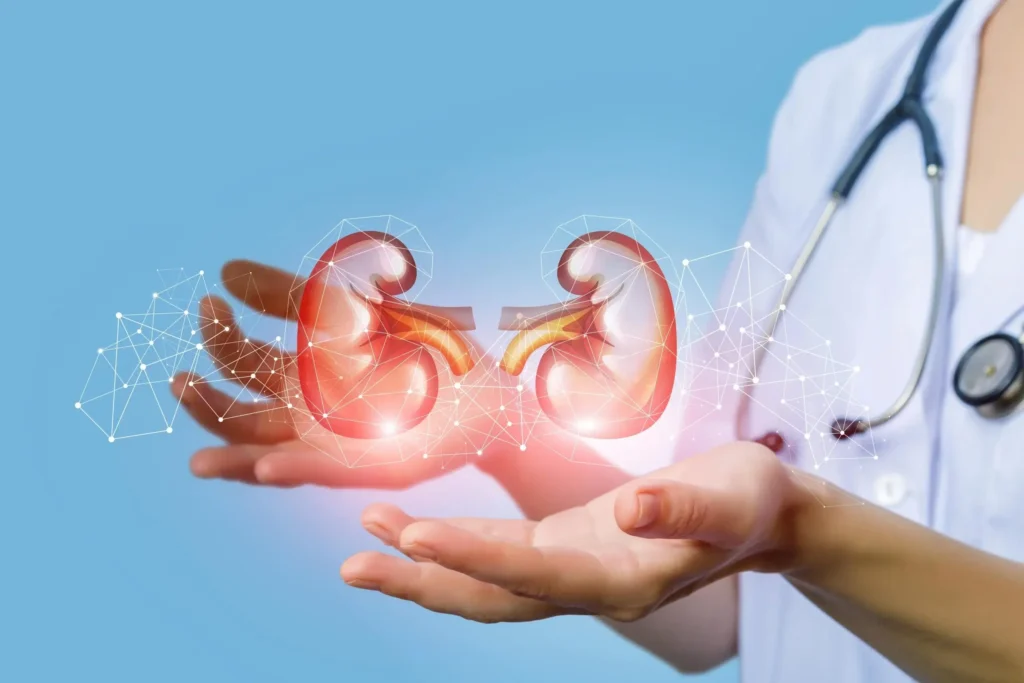Kidney Diseases
Kidney Diseases
The kidneys are vital organs responsible for filtering waste products, excess fluids, and toxins from the blood, maintaining electrolyte balance, and producing hormones that regulate various body functions. Kidney disease, also known as renal disease, refers to conditions that affect the proper functioning of the kidneys. It can range from mild to severe and may lead to significant health complications if left untreated. In this article, we will explore the different types of kidney disease, their causes, common symptoms, diagnostic methods, and available treatments.

Types of Kidney Disease:
Chronic Kidney Disease (CKD):
A long-term condition in which the kidneys gradually lose their function over time, leading to kidney failure if not managed appropriately.
Acute Kidney Injury (AKI):
Sudden and severe damage to the kidneys, often caused by dehydration, infections, or medications.
Polycystic Kidney Disease (PKD):
A genetic disorder characterized by the formation of fluid-filled cysts in the kidneys, potentially leading to kidney enlargement and impaired function.
Common Symptoms of Kidney Disease:
Fatigue and Weakness:
Due to reduced erythropoietin production, which is responsible for red blood cell production.
Swelling:
Accumulation of fluid in the legs, ankles, or around the eyes.
Changes in Urination:
Frequent urination, dark or foamy urine, or blood in the urine
Hypertension:
High blood pressure is a common sign of kidney disease.
Nausea and Vomiting:
A buildup of waste products in the blood can lead to gastrointestinal symptoms.
Shortness of Breath:
Accumulation of fluid in the lungs can cause difficulty breathing.
Treatment of Kidney Disease:
Lifestyle Changes:
Managing underlying conditions like diabetes and hypertension through lifestyle modifications and medication.
Medications:
Certain drugs can help control blood pressure and reduce protein leakage in the urine.
Dialysis:
For advanced kidney failure, dialysis may be required to filter waste products from the blood artificially.
Kidney Transplant:
In end-stage kidney disease, a kidney transplant may be the best option for some patients.
Conclusion:
Kidney disease is a serious condition that requires proper management to prevent complications and preserve kidney function. Early diagnosis, appropriate treatment, and lifestyle changes are essential in managing kidney disease effectively. Regular monitoring and communication with healthcare providers are crucial for those at risk or living with kidney disease. By adopting a healthy lifestyle, managing underlying conditions, and following medical advice, individuals can protect their kidneys and lead healthier lives.

